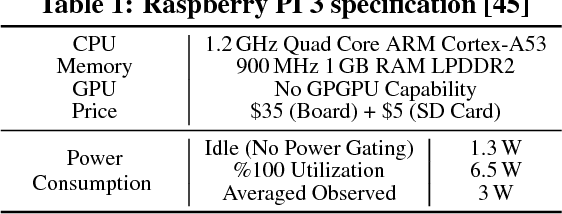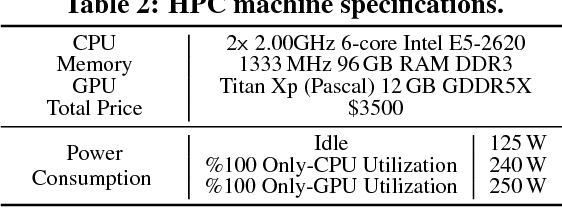Musical Chair: Efficient Real-Time Recognition Using Collaborative IoT Devices
Paper and Code
Mar 21, 2018



The prevalence of Internet of things (IoT) devices and abundance of sensor data has created an increase in real-time data processing such as recognition of speech, image, and video. While currently such processes are offloaded to the computationally powerful cloud system, a localized and distributed approach is desirable because (i) it preserves the privacy of users and (ii) it omits the dependency on cloud services. However, IoT networks are usually composed of resource-constrained devices, and a single device is not powerful enough to process real-time data. To overcome this challenge, we examine data and model parallelism for such devices in the context of deep neural networks. We propose Musical Chair to enable efficient, localized, and dynamic real-time recognition by harvesting the aggregated computational power from the resource-constrained devices in the same IoT network as input sensors. Musical chair adapts to the availability of computing devices at runtime and adjusts to the inherit dynamics of IoT networks. To demonstrate Musical Chair, on a network of Raspberry PIs (up to 12) each connected to a camera, we implement a state-of-the-art action recognition model for videos and two recognition models for images. Compared to the Tegra TX2, an embedded low-power platform with a six-core CPU and a GPU, our distributed action recognition system achieves not only similar energy consumption but also twice the performance of the TX2. Furthermore, in image recognition, Musical Chair achieves similar performance and saves dynamic energy.
 Add to Chrome
Add to Chrome Add to Firefox
Add to Firefox Add to Edge
Add to Edge